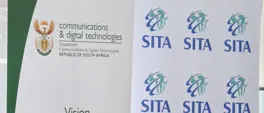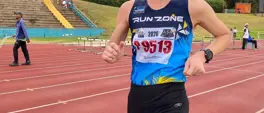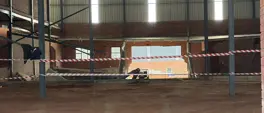MALAIKA MAHLATSI | The argument to exclude foreign nationals from RAF is illegal, dangerous and immoral
Malaika Mahlatsi
3 October 2025 | 7:43Malaika Mahlatsi criticises the media's reporting on a parliamentary response to a question on the RAF's expenditure, with specific reference to foreign nationals.

The Road Accident Fund (RAF) headquarters in Centurion, Gauteng. Picture: Mongezi Koko/EWN
Over the past years, the Parliament, provincial legislatures and municipal councils of South Africa have metamorphosised into sites for the expression of the worst form of bigotry – Afrophobia.
The deep-rooted prejudice, resentment and hatred directed at people of African descent, which manifests as systemic exclusion, discrimination and violence, has become so cemented in these spaces that legislators (with the exception of the Economic Freedom Fighters, which has remained the last line of defence against the monster that is Afrophobia) are comfortable using these platforms to advocate for the introduction of unlawful and immoral laws aimed at further dehumanising foreign nationals in our country.
Nowhere was this more evident than in the recent Parliament sitting, where the acting minister of Transport, Dr Kgosientsho Ramokgopa, had to respond to a question from ActionSA member of Parliament (MP) Alan Beesley, about the expenditure of the Road Accident Fund (RAF), with specific reference to foreign nationals.
In his response, Ramokgopa stated that “a total of R42.94 billion was paid across 128,716 claims during the 2024/25 financial year. R548 million was paid in respect of claims where the claimant or injured is a foreigner”and that a total of 222 personal claims were registered where the claimant or injured is a foreign national. He further added that as of the 13th of September 2025, only 17 out of the 222 foreign claims had been successfully settled, with 78 repudiated, objected to, or flagged as duplicates, while 12 claims have an offer in progress and 115 claims are open and in progress. What this means, statistically, is that in the 2024/25 financial year, foreign nationals made up only 0.013 percent of recipients of RAF payouts, with the money paid out to them accounting for less than 1.5 percent of the total expenditure.
The true horror in this matter is not that ActionSA, a party that was built on a foundation of Afrophobic politics, sought to problematise the fact that the Road Accident Fund makes payouts to foreign nationals.
The true horror is that the SouthAfrican media used the response by Ramokgopa to not only sensationalise and decontextualise the amounts stated by the acting minister, but to also further cement the dangerous and growing narrative that foreign nationals are third-class residents in South Africa and are unworthy of even the barest of legal protections.
The reporting on the matter has been deplorable, with journalists and newsreaders intentionally obfuscating the basis for the existence of the RAF in order to fuel the Afrophobic sentiment that is gaining popularity with each day.
The RAF is a government-run statutory body that provides compulsory social insurance cover to all road users for personal injury or death resulting from motor vehicle accidents occurring within the country's borders. The RAF's role includes rehabilitating and compensating victims and their families. It does not cover damage to vehicles or property, loss of personal belongings, and damage to buildings or goods conveyed in a vehicle.
Thus, it compensates accident victims and their dependants forloss or damage due to injuries or death caused by a motor vehicle accident.
The fund also protects drivers in that the person responsible for the accident is also, in terms of the RAF legislation, indemnified against any claims for compensation for bodily injury. Drivers, passengers, pedestrians, cyclists and motorcyclists can all claim from the RAF as long as they were not entirely responsible for the accident.
The only situation where a person cannot claim from the RAF is if they were the driver and are the owner of the vehicle solely responsible for the accident, and where one was the only person involved in the accident (for example, they were injured because they crashed their vehicle into a tree or other obstacle, and nothing else, such as badly maintained roads, contributed to the accident). Significantly, the fund provides essential insurance to all who use South African roads, including citizens and foreign nationals.
ActionSA MP, Beesley, raised a concern about foreign nationals benefittingfrom the RAF, stating: “It is quite a big concern that we use taxpayers’ money to pay foreigners. The question is why all of that is happening in our country?”
The question implies that only South African taxpayers contribute to the RAF. In reality, anytime anyone within the borders of South Africa purchases petrol or diesel, they automatically contribute to a statutorily prescribed levy, which is used to finance the fund. The National Treasury determines how much the fuel levy will be each year. Both South African citizens and foreign nationals contribute towards the RAF.
On the surface, it may appear that only those with personal vehicles pay towards the RAF. However, anyone in South Africa, citizen or foreign national (documented or undocumented) who uses any mode of transport, contributes to the fund. The fares of those who use public transport such as taxis, which are used by almost two-thirds of people residing in South Africa, are used for the purchasing of petrol and diesel. Therefore, the argument by Beesley that only taxpayers contribute to the RAF is false and misleading.
Another false argument by Beesley is that the practice of compensating road accident victims is unique to South Africa. In reality, this is a global practice, even in countries with stringent immigration laws such as Germany, where I hold residency. Undocumented migrant road accident victims in the entire European Union, which consists of 27 countries, can seek compensation through their national Guarantee Funds if the at-fault driver is uninsured.
Under the EU's Motor Insurance Directive, victims have rights to compensation regardless of their residence status. Member states of the EU are required to provide support, including access to justice and legal assistance, to all accident victims, not dependent on their immigration status, and to ensure their rights are respected under fundamental rights legislation. Member states must ensure that victims, including undocumented migrants, receive support services such as medical treatment, psychological assistance, and information, and must implement measures to facilitate their access to compensation. While the specific mechanisms might differ slightly between member states, the overarching EU framework ensures that the primary right to seek compensation for road traffic accidents, including for undocumented migrants, is protected.
I can understand politicians using blatant lies and spreading misinformation to advance their political agendas, especially where foreign nationals are concerned. Foreign nationals have always been used as scapegoats for the failures of government(s) in the democratic dispensation. Thus, it does not surprise me that Beesley would advance a lawless and factually baseless argument to appease an ActionSA constituency that supports anti-immigrant sentiments advanced by the party.
What I cannot understand and accept is when journalists and news reporters, and the media in general, join in to perpetuate these dangerous politics by not engaging in factual analysis rooted in scientific rigour. It is reckless for any publication, radio or television news outlet to report on such stories without interrogating facts and separating wheat from chaff. It emboldens the bigotry happening in our Parliament, provincial legislatures and municipal councils, where politicians continue to advance illegal and immoral arguments.
More than this, it places the lives of an already vulnerable mmigrant community at risk while also normalising the dehumanisation and de-civilisation that the said community is subjected to in South Africa. Foreign nationals, documented or undocumented, are not sub-humans. They deserve legal protections and dignity for nothing other than the fact that, like any South African citizen, they are human beings. They are human beings!
Malaika Mahlatsi is a geographer (with expertise in urban geography and water resource governance) and researcher at the Institute for Pan African Thought and Conversation. She is a PhD in Geography candidate at the University of Bayreuth in Germany.
Get the whole picture 💡
Take a look at the topic timeline for all related articles.
Trending News
More in Opinion

3 March 2026 11:40
Who belongs in South Africa? UCT philosopher weighs in on identity and ownership

2 March 2026 11:05
TLALI TLALI |Mandate, money and accountability - What the government website debate really reveals

27 February 2026 11:00
JAMIL F. KHAN | Human rights last on the list for global leadership agenda














